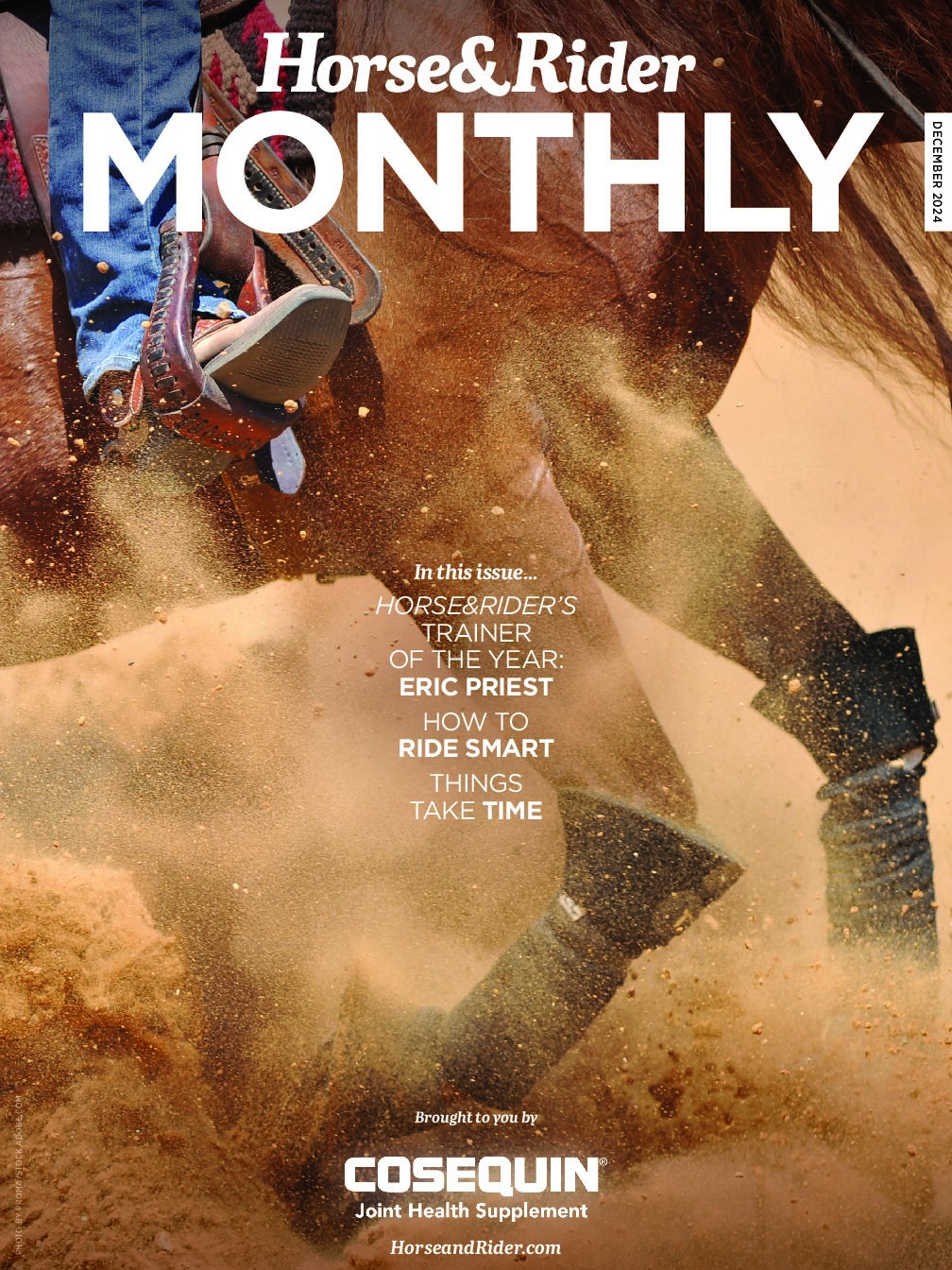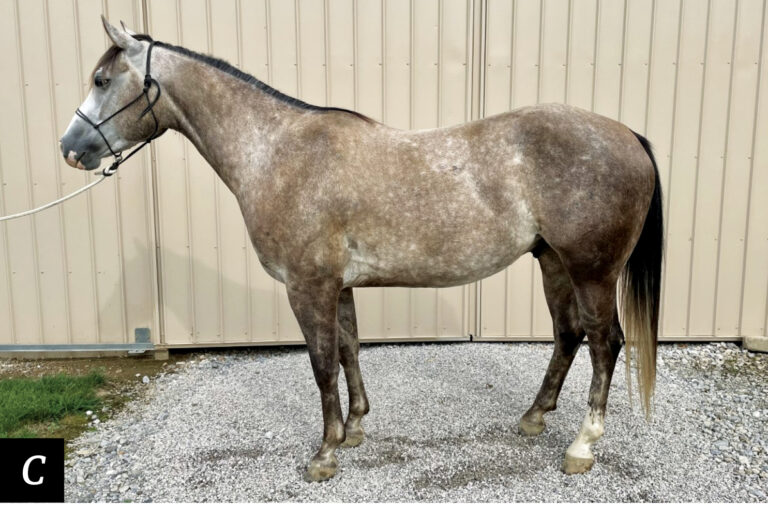If the trees in your pasture are stripped of bark, your horses are probably to blame. Even if you don’t catch them in the act, you’ll have a good idea that they are the culprits if the damage on the trunk starts around wither height and goes up from there.

Chewing on poisonous trees poses an immediate hazard. All parts of the black walnut tree are toxic to horses and can even induce laminitis. The bark of red maple and cherry trees doesn’t seem to be as poisonous as their wilted leaves, but it can also be dangerous. If your horses have access to any of these trees, consider removing them even if he isn’t chewing on them.
Read More: Plants Toxic To Horses
If your horses strip bark from nontoxic trees, there is still cause for concern. Not only is it bad for the tree, but it may indicate your horse is missing something in his diet. Many horses who chew bark do it to satisfy a need for forage. Try giving your tree-eater free-choice access to hay to see if the behavior stops. Bored horses may also turn to tree chewing to pass the time. Providing more forage may help but it might be even better to add a companion horse.
Of course, you can also block access to the trees. The surest and safest way is to use fencing to create a barrier between the tree and your horse. But be sure to set the fences far enough away from the trunk to prevent the horse with the longest neck from reaching over for a nibble.

Another option is wrapping the trees in protective wire, mesh or PVC. But remember you will be creating a different hazard if the horse begins chewing on these barriers instead. In addition, you may want to consult an arborist to make sure your wrappings won’t damage the tree.







